Kartell’s industrial manifesto puts sustainability front and centre
Kartell presents its sustainability manifesto, revisiting classic products like the ‘Componibili’ cabinet in biodegradable materials, and introducing new sustainable designs in recycled plastics by Philippe Starck and Antonio Citterio
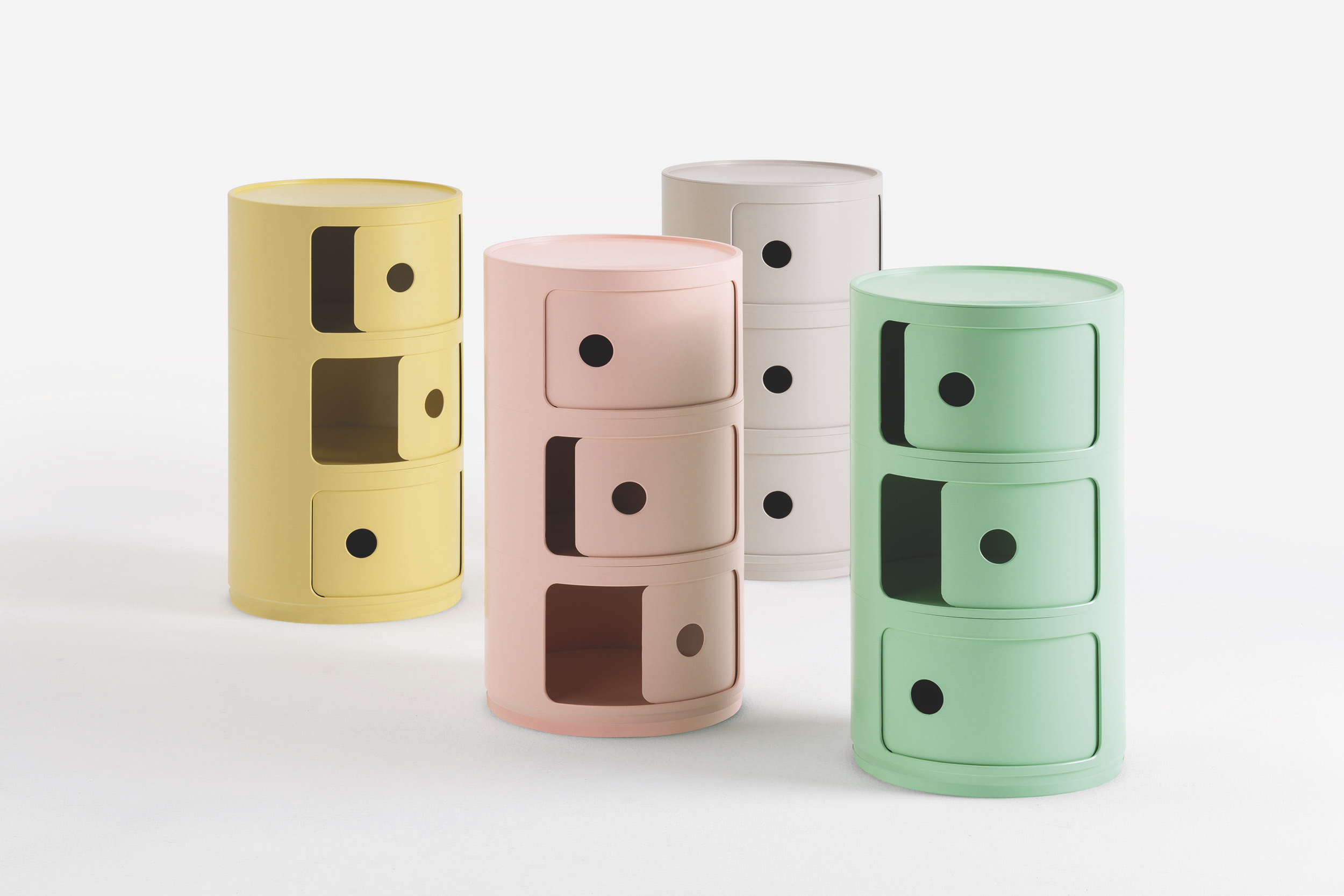
Kartell loves the planet: this is the message of the Italian design company’s industrial manifesto, outlining Kartell’s ongoing commitment to sustainability and environmental concern.
Founded in 1949 by Giulio Castelli and Anna Castelli Ferrieri and currently run by second-generation Claudio Luti with third-generation Lorenza Luti, Kartell is today one of Italy’s best-known design brands. It has produced some of the most iconic contemporary designs for the home, from Castelli Ferrieri’s ‘Componibili’ storage units to the ‘Bookworm’ bookcase by Ron Arad and the ‘Louis Ghost’ chair by Philippe Starck, plus further pieces (including furniture, portable lamps and objects) by the likes of Patricia Urquiola, Erwan and Ronan Bouroullec and Tokujin Yoshioka.
Kartell ‘Componibili’ and more: icons revisited with a sustainable approach
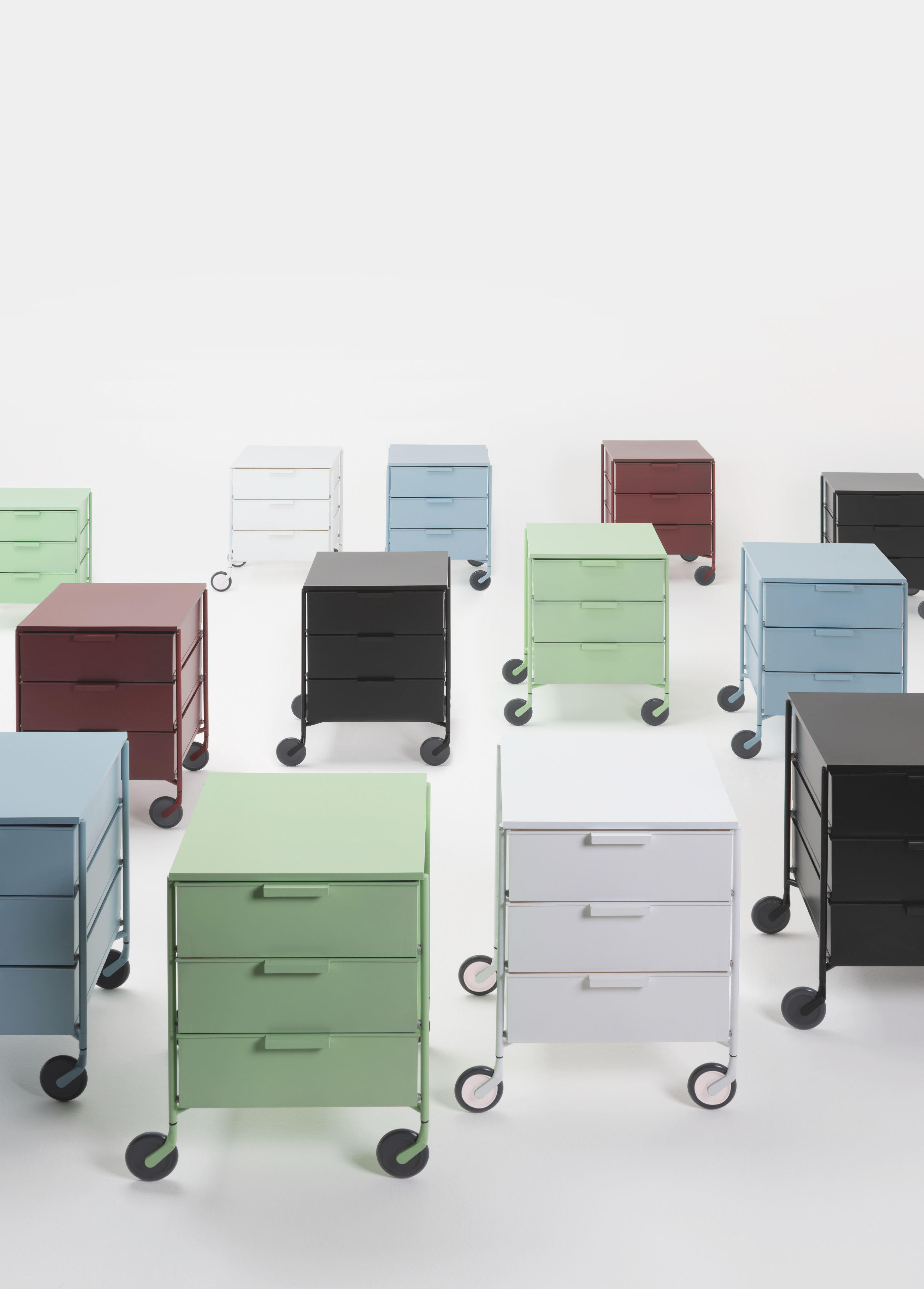
The ‘Mobil’ storage unit by Antonio Citterio, now recreated in recycled plastic.
Kartell’s designs are made of plastic, a material not commonly associated with sustainability, but since its inception, the company has worked to ensure its pieces are durable and long-lasting: ‘Kartell’s vocation is to create value: not simple objects, but pieces that can contribute towards building a cultural project,’ reads the manifesto. In recent years, the company’s efforts have expanded to focus on material research and development to ensure every element of the design brand is green.
‘Sustainability has been a key theme throughout the Kartell’s history,’ explains Lorenza Luti. ‘Through our archives, we found several examples of sustainable material experiments from the 1950s, 60s and 70s.’ 2020 marked an important year for Kartell, she says, a time when it continued, and kickstarted, a series of initiatives driven by environmental concern and a desire to revolutionise the company.
These include revisited versions of its classics, such as the 1967 ‘Componibili’ updated in a biodegradable material (a specially developed biomass made of agricultural waste) in a series of pastel colours; and the ‘Mobil’ utility storage, a Compasso d’Oro winner designed in 1994 by Antonio Citterio and now revised in recycled industrial materials from the automotive, furniture and packaging industries.
A new sustainable design direction
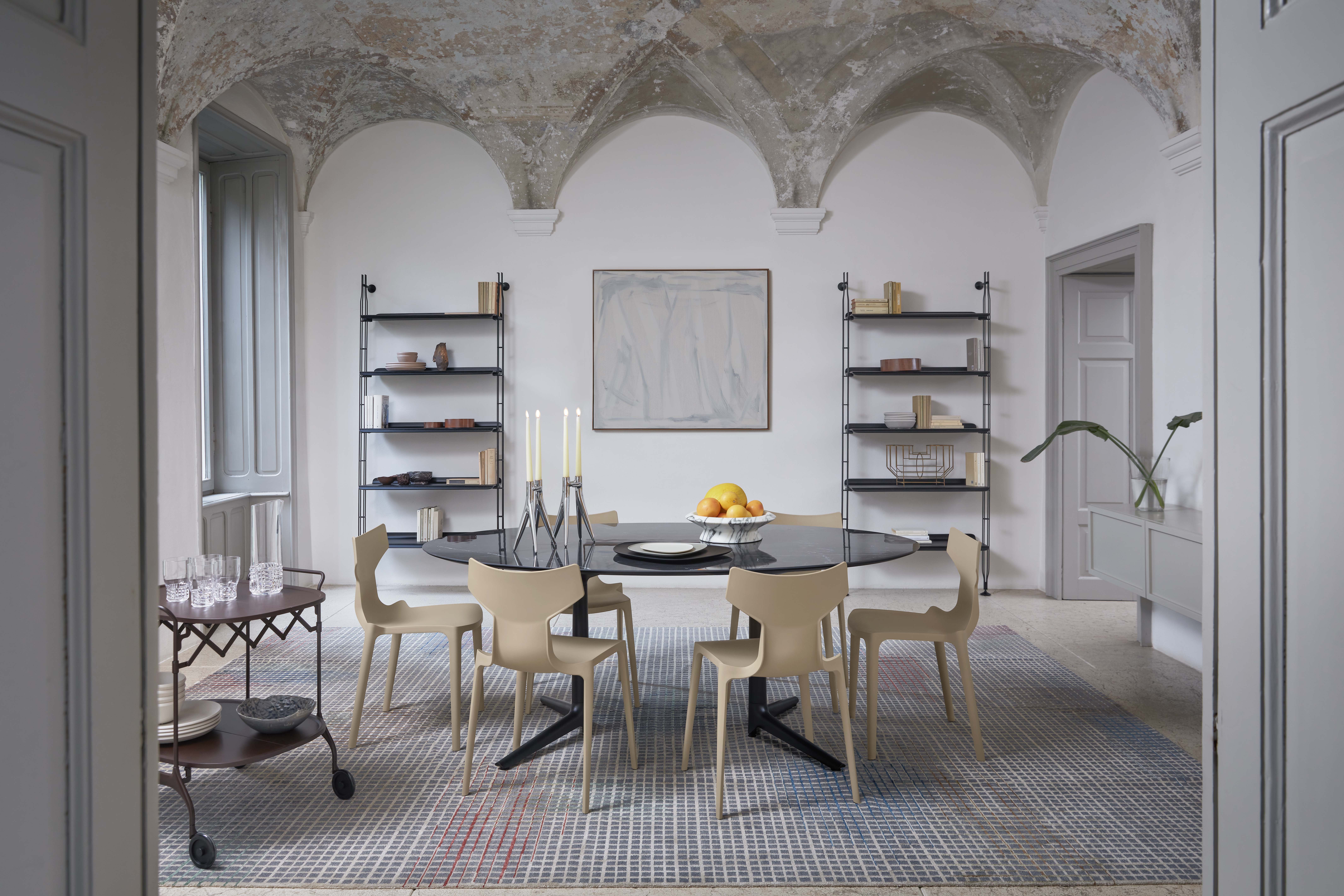
Antonio Citterio’s ‘Re-Chair’ in recycled plastic.
Lorenza notes that currently, over half the collection is has been transformed in this direction, with every new piece from Kartell being conceived with sustainability in mind. Examples include ‘Re-Chair’, the new 100 per cent recycled chair by Citterio; and Starck's ‘A.I.’, the company’s first recycled plastic chair, presented in 2019. ‘Our current approach is not just focused on product, but on every process in the company,’ continues Lorenza, explaining that Kartell's material innovation developments are currently branching out into several directions, with special attention to recycled plastics. ‘The challenge has been to create a new material that mantains our products' aesthetic and performance but with a circular approach.’ It’s process, she notes, that has been more than five years in the making and has resulted in a huge leap from the early recycled prototypes.
From a corporate perspective, the brand is also working to gain the necessary certifications to further monitor its work. Engaging with sustainability specialists, Kartell regularly assesses its production for technological suitability, development and quality. ‘We aim at reaching the top level for material certification,’ explains Lorenza. ‘Our designers have been on board with this approach, creating with material waste in mind.’
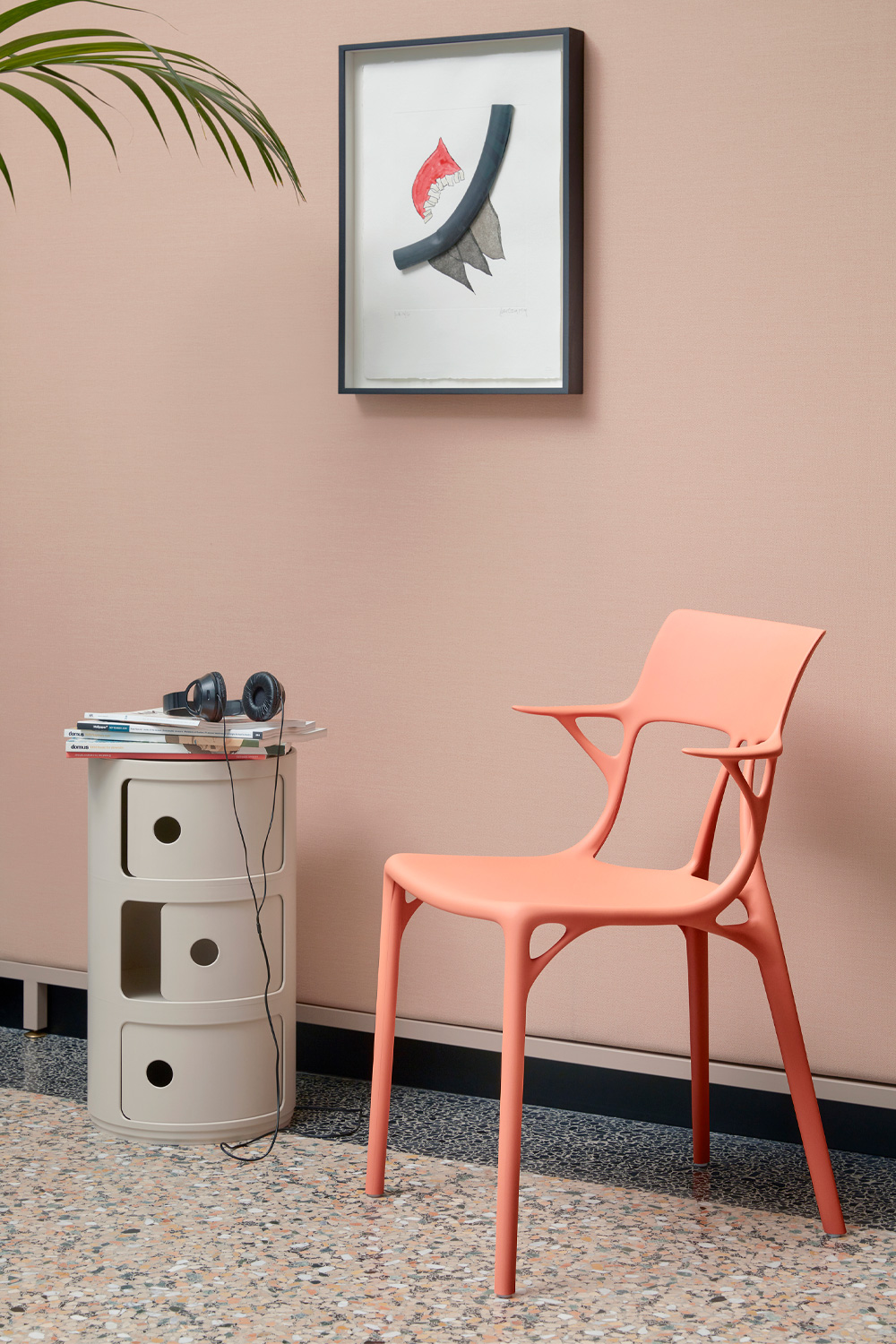
Philippe Starck’s ‘A.I.’ chair in recycled plastic.
One project several years in the making is dedicated to transparency (a key element of Kartell's product identity and seen, for example, in Starck's ‘Louis Ghost’ chair and Ferruccio Laviani's ‘Bourgie’ lamp). ‘We have been working with a specially developed polycarbonate that combines a second-generation renewable polymer that comes from paper and cellulose waste,’ says Lorenza. This material has a 75 per cent reduced impact on the environment, and will allow Kartell to further develop its sustainability goal across the collection.
As with the recycled plastic already used elsewhere in the collection, the difference in the final product is imperceptible, and the sustainable options will slowly replace existing materials. Lorenza stresses that sustainability is a team effort, and an ongoing collaboration with the company’s team of designers who, she notes ‘are all very sensible to the topic and enthusiastic about collaborating in this direction’.
Adds Claudio: ‘It’s not a question of simply creating a product that seems green, but of generating an industrial strategy that involves the entire manufacturing process.’
Wallpaper* Newsletter
Receive our daily digest of inspiration, escapism and design stories from around the world direct to your inbox.
INFORMATION
Rosa Bertoli was born in Udine, Italy, and now lives in London. Since 2014, she has been the Design Editor of Wallpaper*, where she oversees design content for the print and online editions, as well as special editorial projects. Through her role at Wallpaper*, she has written extensively about all areas of design. Rosa has been speaker and moderator for various design talks and conferences including London Craft Week, Maison & Objet, The Italian Cultural Institute (London), Clippings, Zaha Hadid Design, Kartell and Frieze Art Fair. Rosa has been on judging panels for the Chart Architecture Award, the Dutch Design Awards and the DesignGuild Marks. She has written for numerous English and Italian language publications, and worked as a content and communication consultant for fashion and design brands.
-
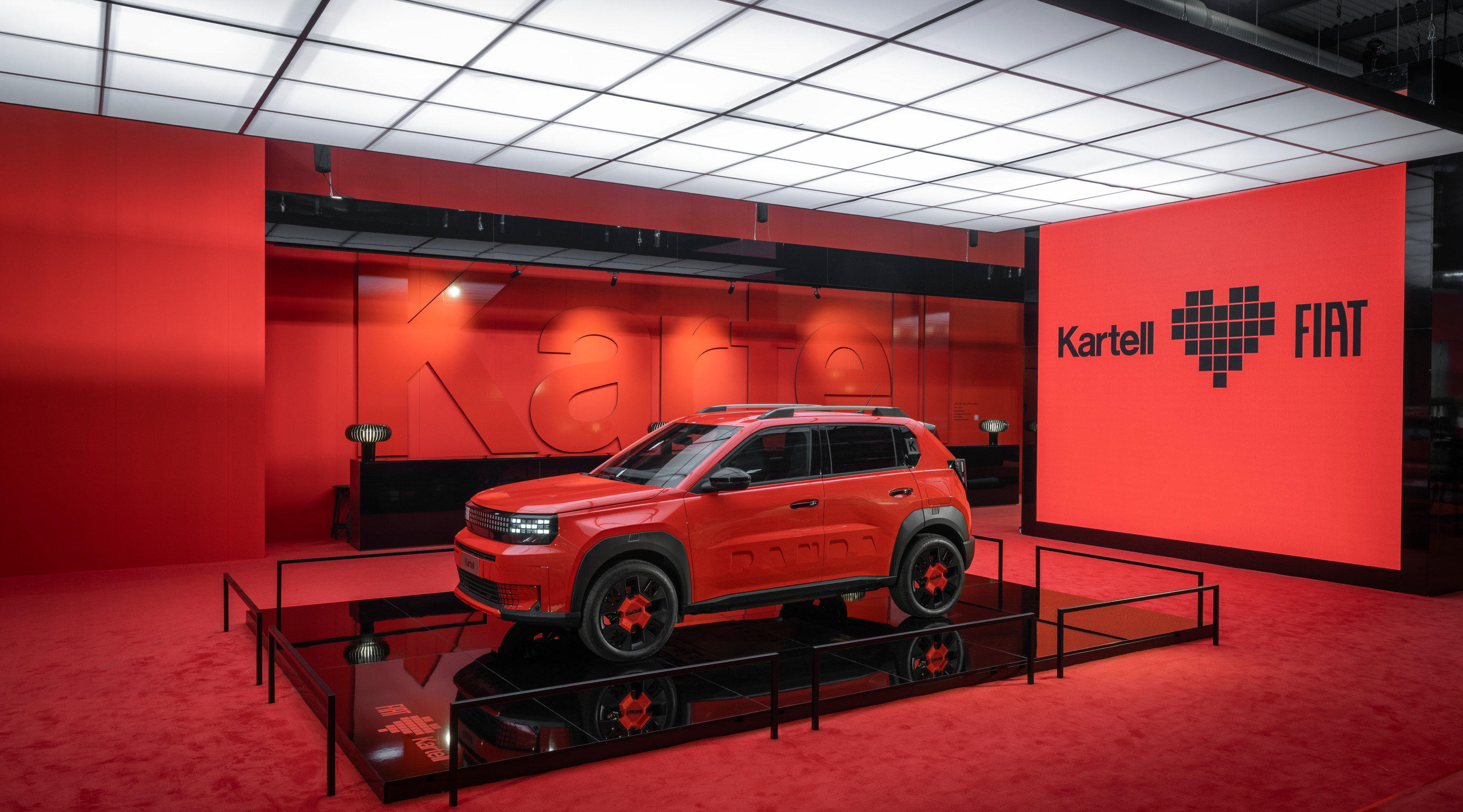 The Milanese Motor Show, or how Milan Design Week got friendly with four-wheels
The Milanese Motor Show, or how Milan Design Week got friendly with four-wheelsThe motor industry’s take-over of MDW continues apace. We’ve trawled the halls and assembled our own auto show to explore below
By Jonathan Bell Published
-
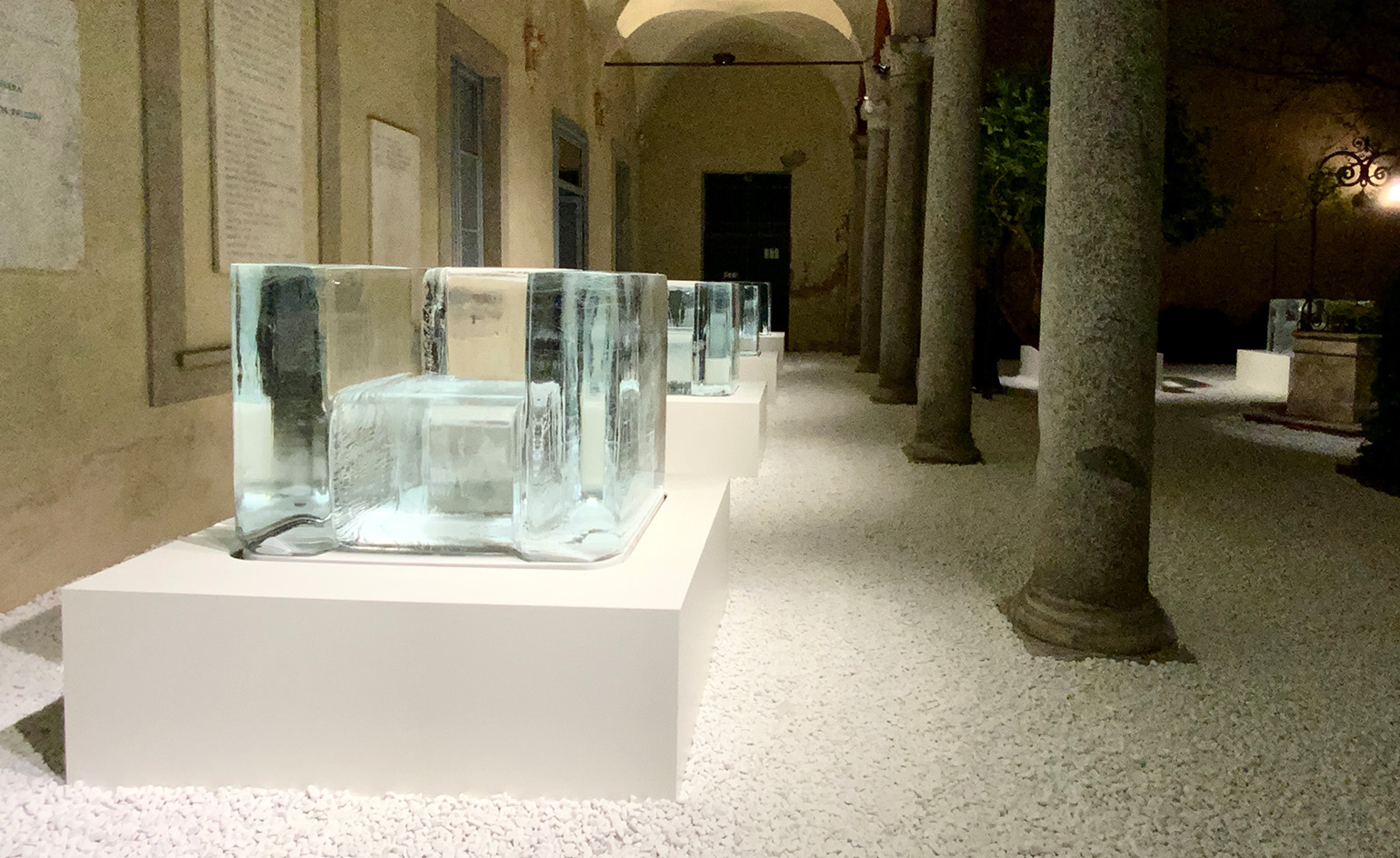 Tokujin Yoshioka’s ephemeral ice furniture is made to melt in Milan
Tokujin Yoshioka’s ephemeral ice furniture is made to melt in MilanTransparent chairs of frozen water slowly disappear during Milan Design Week 2025, in an expression of light by Japanese artist Tokujin Yoshioka
By Danielle Demetriou Published
-
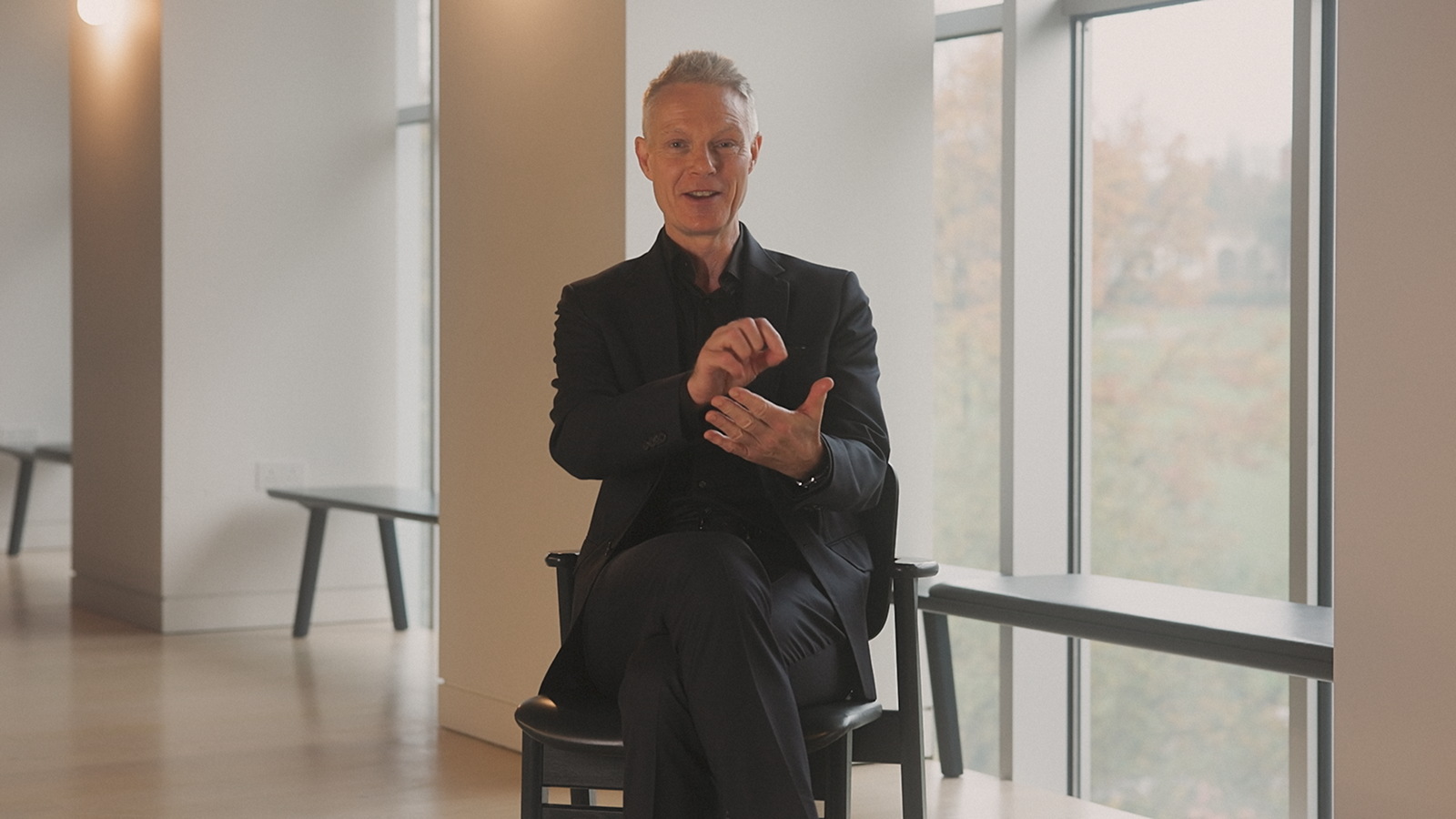 Could putting pen to reMarkable’s Paper Pro tablet make you more creative and less stressed?
Could putting pen to reMarkable’s Paper Pro tablet make you more creative and less stressed?Design Museum director Tim Marlow extols the power of ‘scribbling’, and is backed up by new research from reMarkable on the benefits of its paper tablet
By Simon Mills Published
-
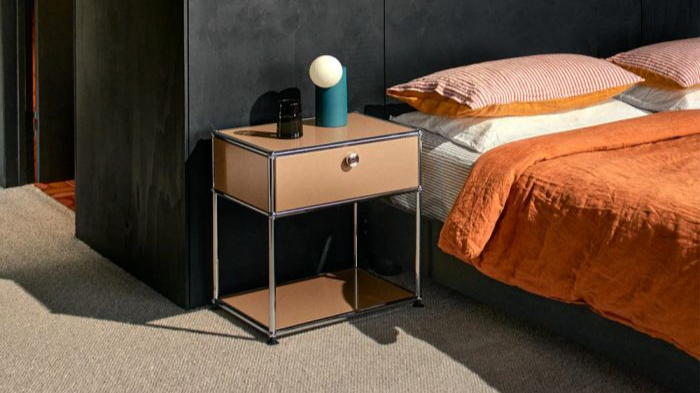 Bedside tables for design enthusiasts
Bedside tables for design enthusiastsEssential companions for your nightly rituals, discover 10 bedside tables that balance function and style.
By Ali Morris Published
-
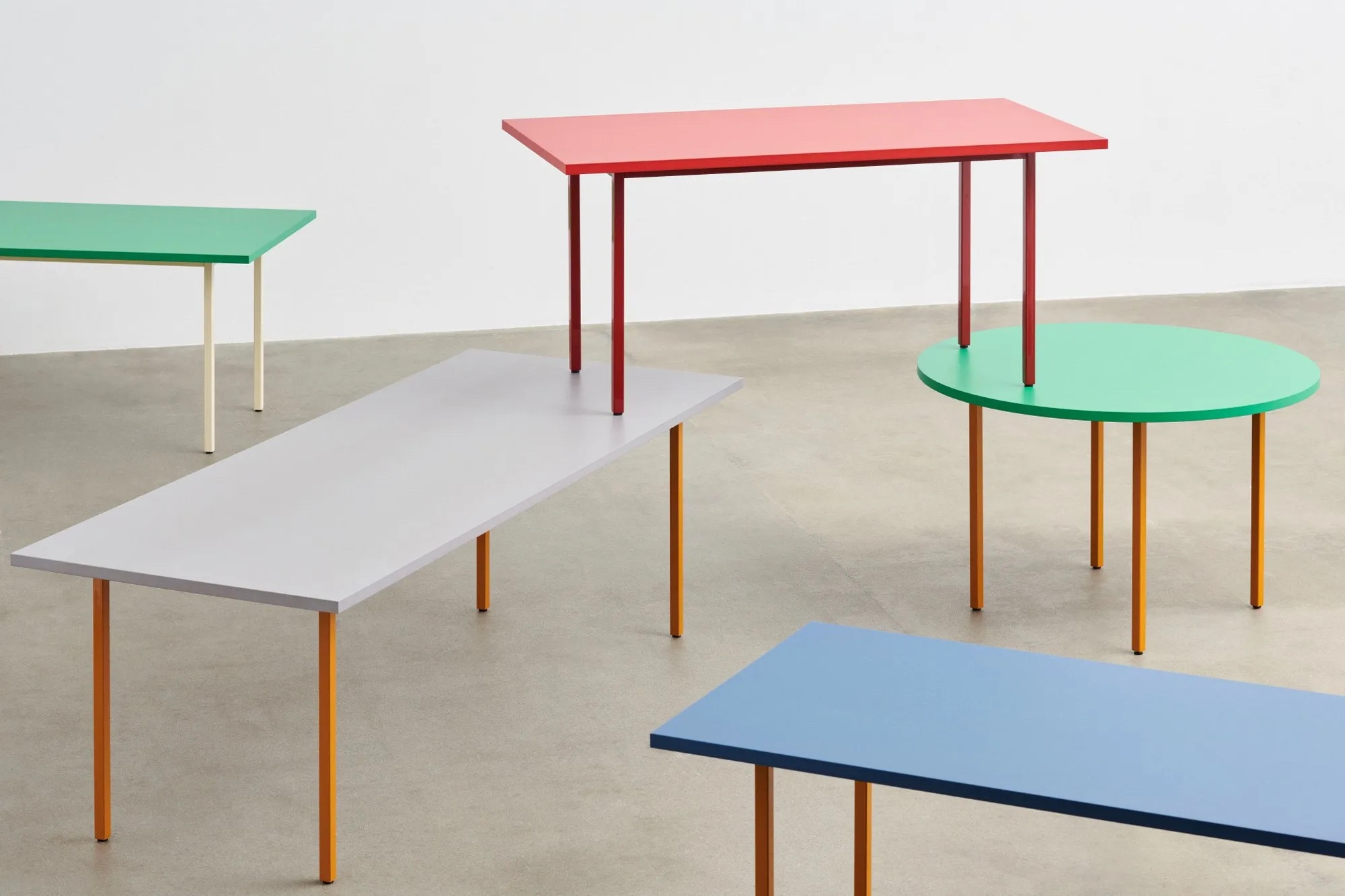 An appetite for design: 10 of our favourite dining tables
An appetite for design: 10 of our favourite dining tablesDiscover the best dining tables: a curated selection of enduring favourites and exciting new pieces from designers around the world.
By Ali Morris Published
-
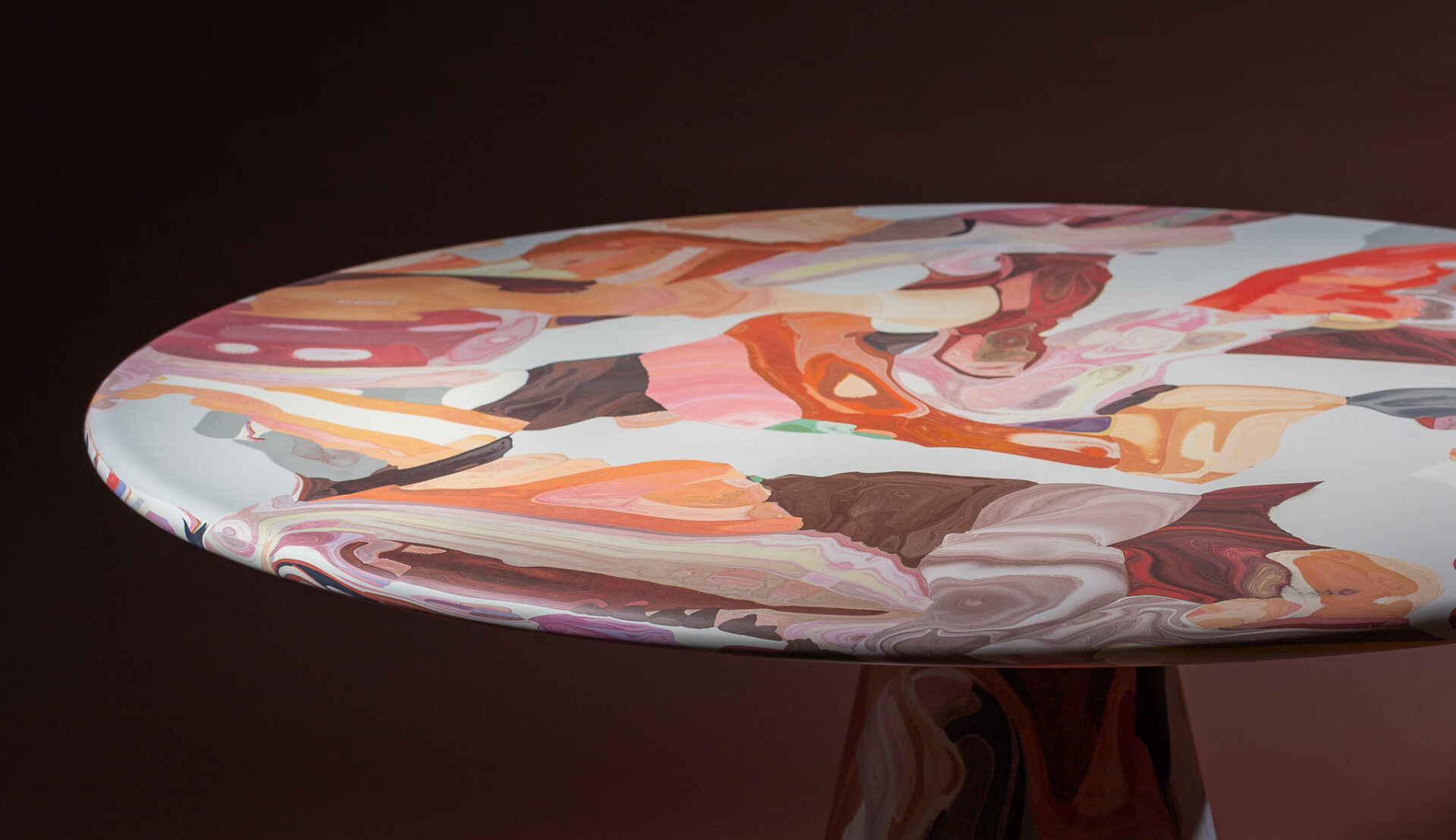 Gather round! The best coffee tables for design lovers, from the colourful to the sculptural
Gather round! The best coffee tables for design lovers, from the colourful to the sculpturalExplore the best coffee tables: discover our handpicked selection of enduring favourites alongside new, notable pieces
By Ali Morris Published
-
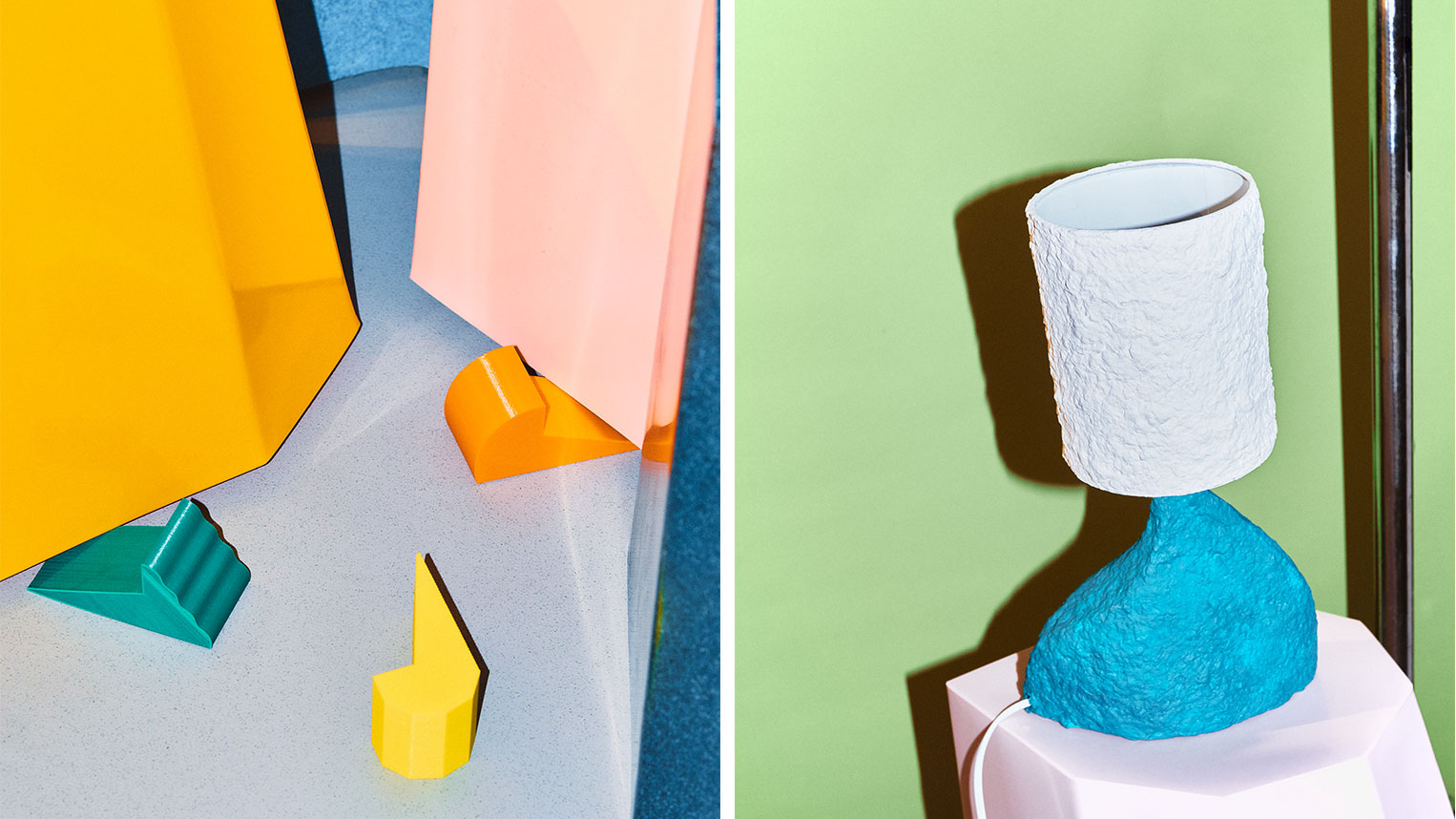 Hyperlocal design: these Atelier100 products are made within 100km of London
Hyperlocal design: these Atelier100 products are made within 100km of LondonAtelier100 launches its retail space and debut locally focused design collection in London’s Hammersmith
By Martha Elliott Published
-
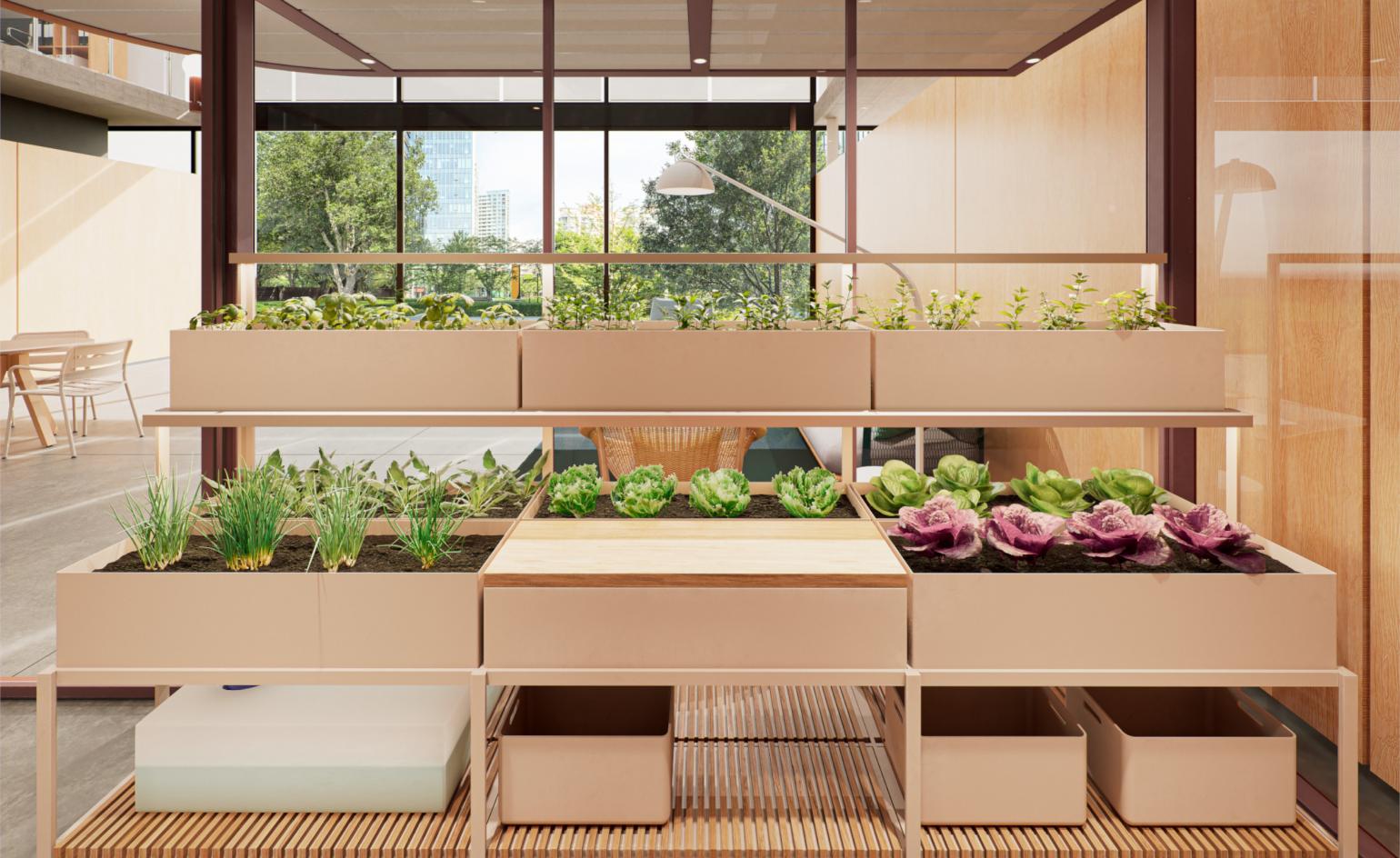 Kettal and Tectum’s indoor hydroponic garden combats cabin fever with office-grown veg
Kettal and Tectum’s indoor hydroponic garden combats cabin fever with office-grown vegKettal and Tectum Garden’s hydroponic indoor garden offers new opportunities for home-grown veg and adds a sprinkle of greenery to office spaces
By Martha Elliott Last updated
-
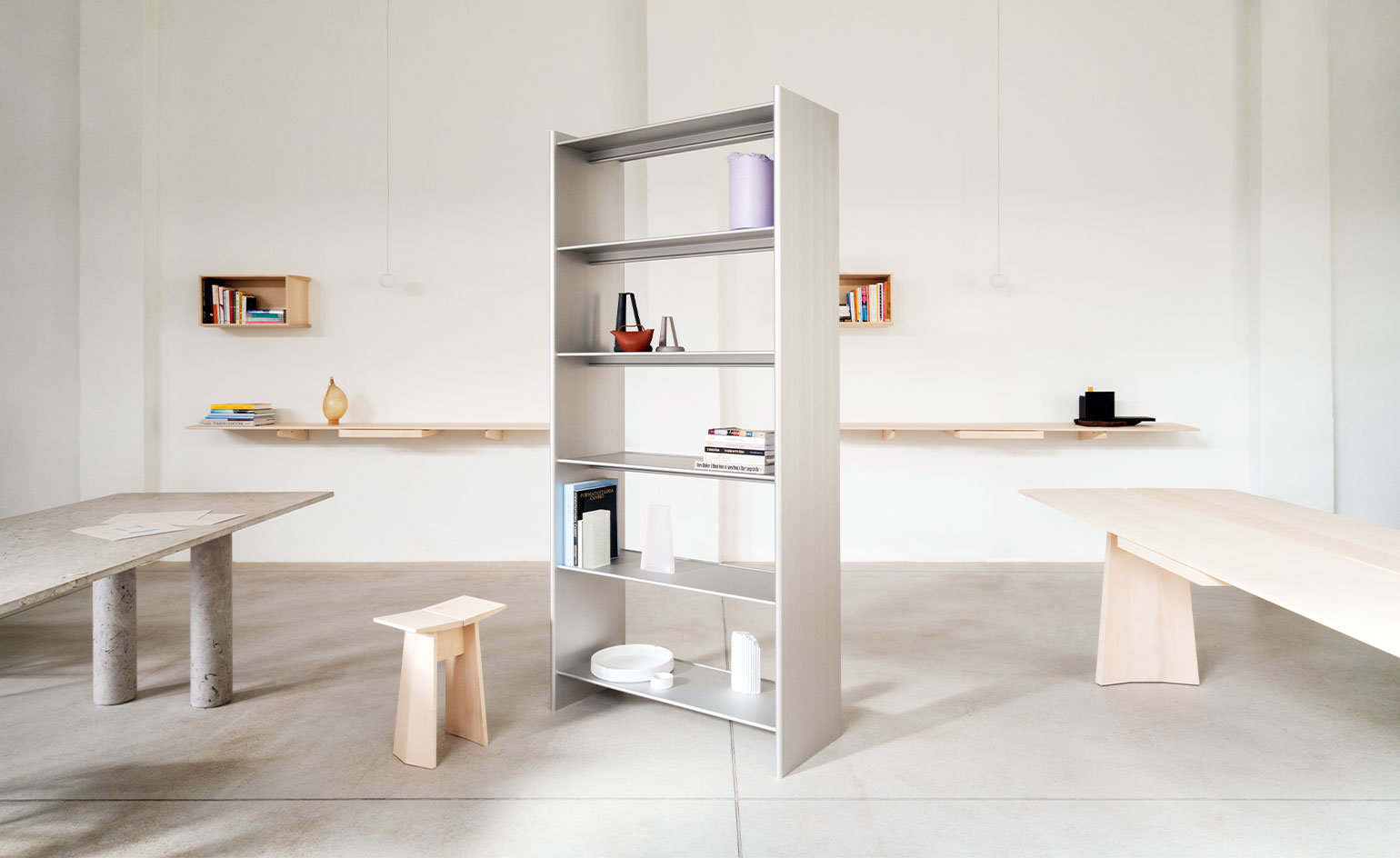 Formafantasma’s minimalist, responsible shelving system for Hem
Formafantasma’s minimalist, responsible shelving system for HemFormafantasma and Hem unveil the ‘T Shelf’, a design in extruded aluminium created in collaboration with specialist Hydro
By Anne Soward Last updated
-
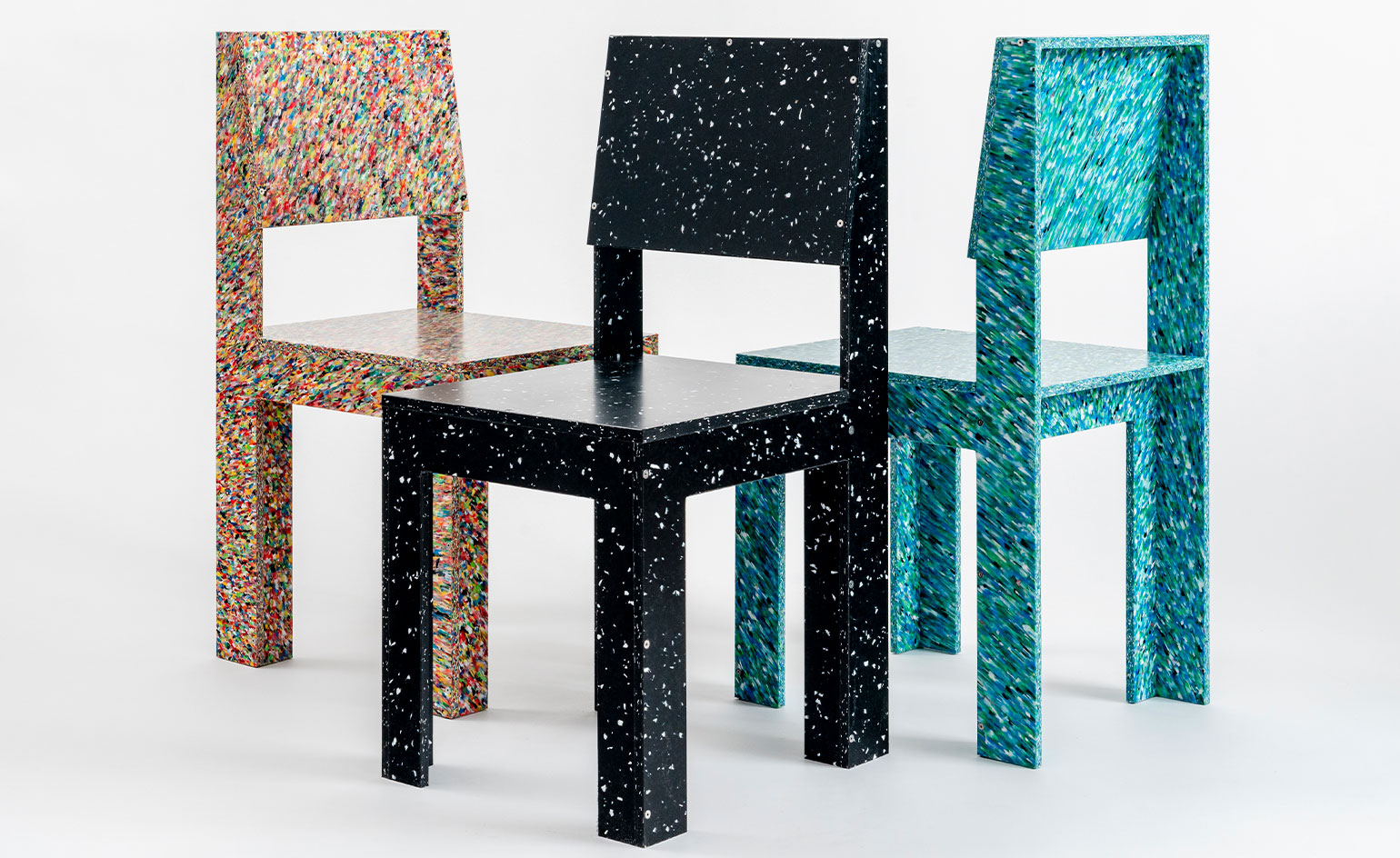 Post consumer waste design: Jane Atfield’s groundbreaking recycled chair turns 30
Post consumer waste design: Jane Atfield’s groundbreaking recycled chair turns 30New York gallerist Emma Scully revisits the groundbreaking design of Jane Atfield's RCP2 recycled plastic chair, on the 30th anniversary of its creation
By Pei-Ru Keh Last updated
-
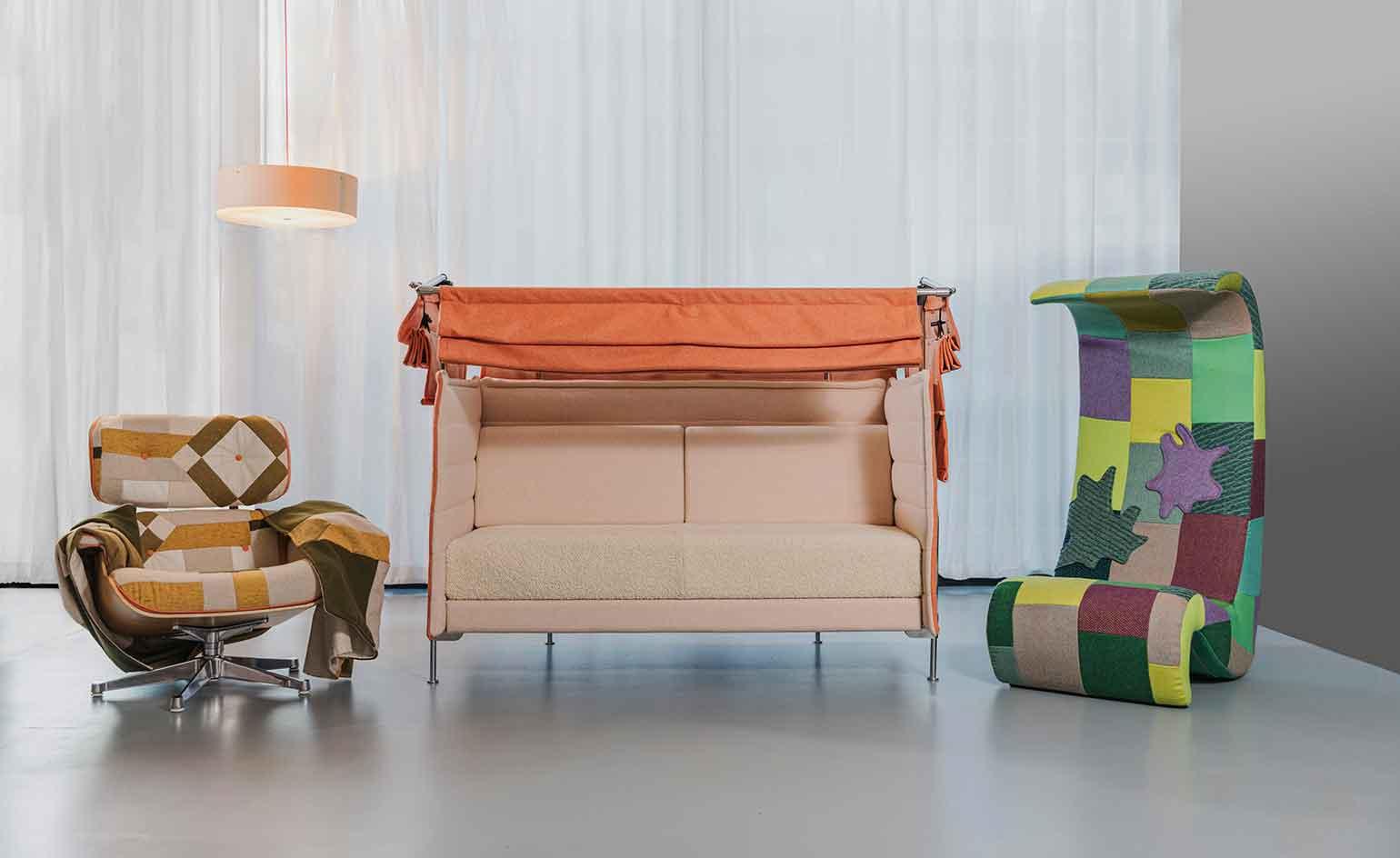 Glasgow School of Art students give new life to CitizenM lobby furniture
Glasgow School of Art students give new life to CitizenM lobby furnitureCoinciding with COP26, CitizenM partners with The Glasgow School of Art to showcase iconic Vitra furniture pieces repurposed by interior design students in collaboration with Bute Fabrics
By Rosa Bertoli Last updated